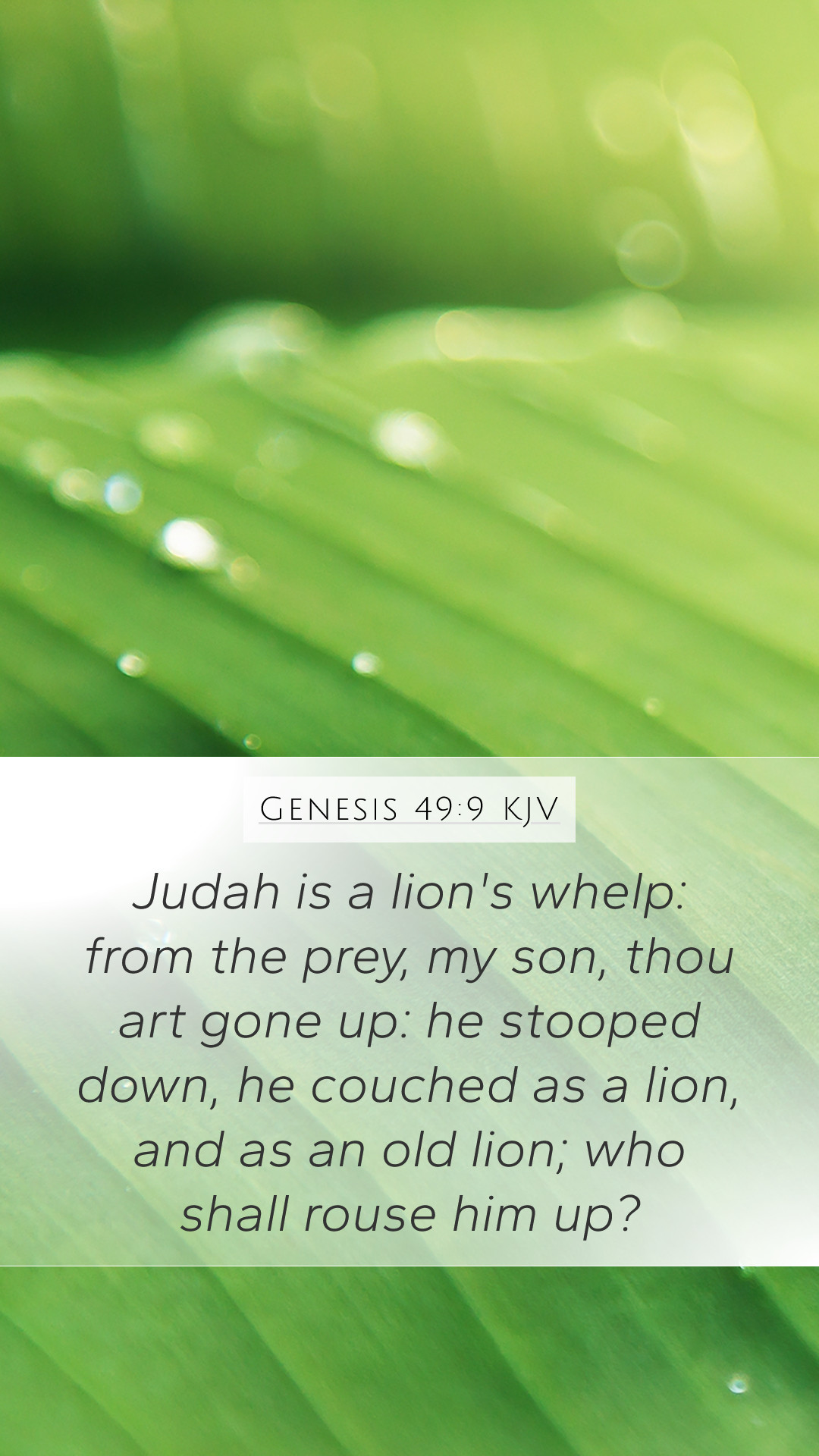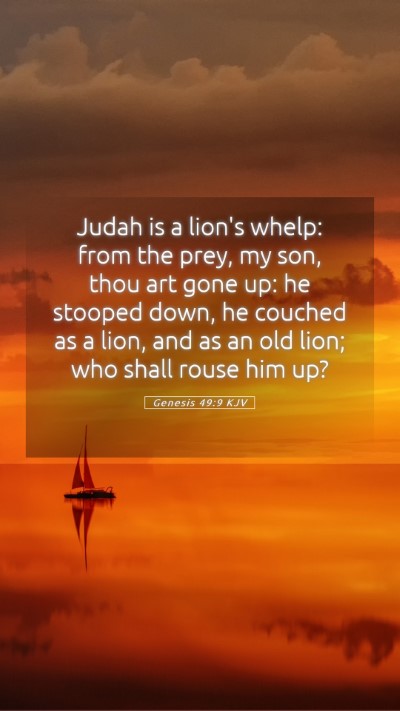Genesis 49:9 - Understanding This Notable Bible Verse
In Genesis 49:9, Jacob prophesies over his son Judah, declaring, "Judah is a lion's whelp: from the prey, my son, thou art gone up: he stooped down, he couched as a lion, and as an old lion; who shall rouse him up?" This verse holds significant meanings and interpretations within the larger narrative of Scripture and the unfolding of biblical history.
Meaning and Context
To fully grasp the bible verse meaning, it is essential to consider the context of Jacob’s blessings to his sons. This occurs towards the end of his life and signifies a prophetic declaration regarding their futures, as noted by Matthew Henry. Judah, being the fourth son, is singled out, and his description as a lion illustrates strength and leadership.
Commentary Insights
Matthew Henry points out that Judah’s character and his future role in Israel are highlighted in this blessing. He interprets Judah’s boldness and courage symbolized by a lion, representing a tribe that would lead Israel and eventually be the lineage from which Jesus Christ would come.
Albert Barnes elaborates on this lion imagery, emphasizing the power and majesty associated with Judah. He indicates that the description of Judah "stooping down" reflects both submission and the potential for great authority, marking a significant transition in Israel's history as the tribe that would carry kingly authority.
Adam Clarke further explains the meaning of a lion’s whelp, suggesting that Judah’s strength will develop over time, much like a young lion growing into full maturity. He also mentions the protective nature of lions and how this symbolizes Judah's role in defending his people.
Significance and Application
Genesis 49:9 carries profound implications for understanding Scripture, particularly concerning biblical prophecy. The mention of a lion not only stands as a testament to Judah's future but encapsulates the narrative of redemption found in the Bible. This verse suggests that from within the family of Jacob, a powerful leader will rise, embodying strength and courage.
In terms of bible study insights, this verse serves as a crucial point for connecting Old Testament prophecies with New Testament fulfillments, particularly in identifying Jesus as the "Lion of the tribe of Judah" (Revelation 5:5), which underscores his kingly authority and role in divine redemption.
Biblical Exegesis
The biblical exegesis of Genesis 49:9 can lead to an understanding of how various qualities associated with lions, such as strength, leadership, and courage, reflect upon the character of Judah, and by extension, the kingdom that would emerge from his lineage. This view reinforces the relevance of Old Testament themes in New Testament theology.
Cross References to Consider
- Revelation 5:5 - "Weep not: behold, the Lion of the tribe of Judah, the Root of David, hath prevailed to open the book, and to loose the seven seals thereof."
- Deuteronomy 33:7 - "And this is the blessing of Judah: and he said, Hear, Lord, the voice of Judah, and bring him unto his people: let his hands be sufficient for him; and be thou an help to him from his enemies."
- Matthew 1:2-3 - "Abraham begat Isaac; and Isaac begat Jacob; and Jacob begat Judas and his brethren."
Conclusion
Genesis 49:9 encapsulates a richness of biblical depth, presenting an opportunity for meaningful bible verse interpretations and insights for bible study groups. It highlights the prophetic significance of Judah and establishes a bridge between the Old and New Testaments, making it a powerful scripture for online bible study and personal reflections. For those seeking to know more about the meaning of Bible verses and their application, this verse exemplifies how historical context informs theological understanding in our lives today.


